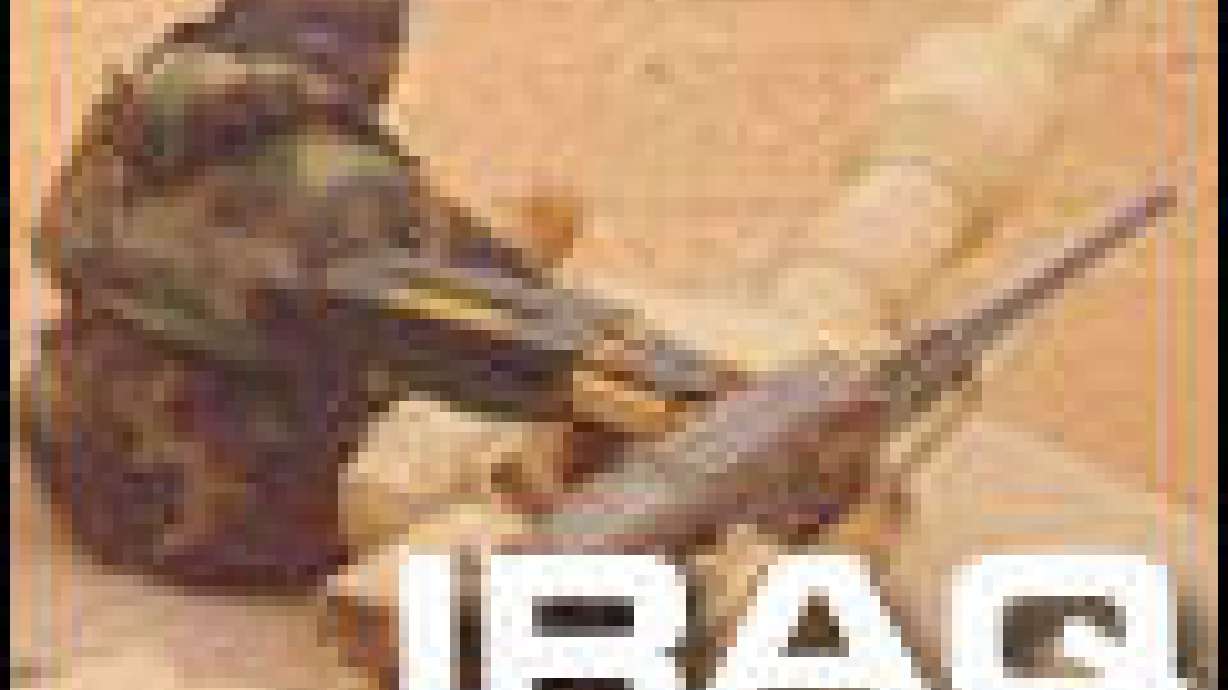Estimated read time: 4-5 minutes
This archived news story is available only for your personal, non-commercial use. Information in the story may be outdated or superseded by additional information. Reading or replaying the story in its archived form does not constitute a republication of the story.
KUWAIT CITY (AP) -- British forces began establishing the first post-war administration in Iraq on Tuesday, putting a local sheik into power in the southern city of Basra shortly after their troops took control of the city.
The sheik was identified as a tribal leader, but his name and religious affiliation were not disclosed. Col. Chris Vernon, spokesman for the British forces, said the sheik had met British divisional commanders Monday and been given the job of setting up an administrative committee representing other groups in the region.
The sheik and his committee will be the first civilian leadership established in liberated Iraq, even as retired U.S. Gen. Jay Garner, appointed by the Pentagon to form an interim post-war administration, tries to define a new leadership for the whole country.
The sheik's committee will be left alone by the British to form a local authority, Vernon said. Garner has signed off on the British plan, Vernon said.
A spokesman for Garner, Capt. Nathan Jones, declined to offer additional details.
"General Garner has come up and spoke to the British divisional commander and we will be working fully in cooperation with his Office of Reconstruction and Humanitarian Aid," Vernon said.
The sheik, a local figure and not an Iraqi exile, indicated he could tap some figures in Saddam Hussein's ruling Baath party who did not oppress the local people, Vernon said. Most of the Baath officials in Basra had been outsiders and were detested.
"We have ascertained that he is worthwhile, credible and has authority in the local area, particularly with the tribal chiefs," Vernon said, adding that the sheik will form his committee as he sees fit "and we will take him at his word on his judgment."
"We would very much trust their self-selection," Vernon said. "Their knowledge of the locals is far greater than ours is. They've been there. We've only been there 14 days."
Setting up a national-level administration has taken on increasing importance as U.S. and British forces have taken control of the country, but significant questions about the role of military rule and the degree of Iraqi and United Nations involvement remain unanswered.
President Bush and British Prime Minister Tony Blair told a news conference Tuesday in Northern Ireland that ruling Iraq will be handed over Iraqis as soon as possible.
"The message from the United States is that Iraqis are plenty capable of running Iraq, and that is what is going to happen," Bush said.
The United Nations would have a role in all aspects of postwar Iraq, from aid or helping to set up an interim authority until elections can be held, Bush said.
In Basra, elements of the local police could be involved to help re-establish law and order, Vernon said, but indicated for the moment, they would not be allowed to carry weapons. Anyone carrying a gun will be considered an irregular fighter and risk being killed.
The British consider Iraq to be fertile ground to transfer as much control to civilians quickly, Vernon said. Apart from shortages of water, there is no major humanitarian problem.
"This is not a former Yugoslavia, this is not Afghanistan," Vernon told a news briefing. "Basically, what we see in the Basra province is a broadly functioning civil infrastructure, and administration, to a lesser degree."
After nearly two weeks at the city's gates, British troops judged the time right Sunday for taking Basra and pushed into the urban area with 93 tanks and 70 armored fighting vehicles, using machine guns rather than heavier weapons to avoid civilian casualties, Vernon said.
Vernon acknowledged that there had been looting and said that British forces would be shifting from combat operations to law-and-order work. The resistance from irregular forces "is almost extinguished. Many of them did fight, right until the end."
Iraqi army forces that had been holed up in Basra had disintegrated, Vernon said. At least 4,000 prisoners of war had been taken in the region in the past two weeks and more were believed to have been captured in the fall of the city.
Non-Iraqis had fought alongside pro-Saddam irregular forces, Vernon said. He did not identify their countries. But he said there had been no involvement by either Iran's military or Iranian-based dissident groups.
(Copyright 2003 by The Associated Press. All Rights Reserved.)









